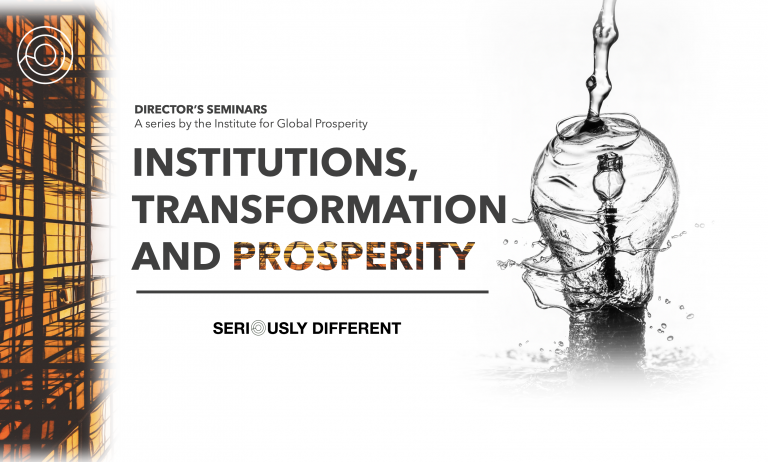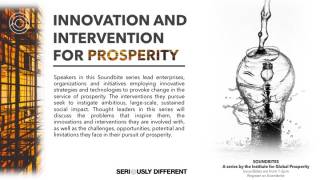The IGP's Director’s Seminars Series Term 2 (2019/20)
20 December 2019
The IGP's Director's Seminars series are public events hosted by the UCL Institute for Global Prosperity, and open to all.

**Please register for each Director's Seminar on Eventbrite.**
The IGP's Director's Seminars are an opportunity for audiences to get an in-depth theoretical perspective on sustainable and inclusive prosperity. These Seminars are given by academics who are pushing for new ways of thinking and new ways of researching society's grand challenges.
Understanding the essence of institutions and consequences of institutional change is essential for building more inclusive, equitable and prosperous societies. This Director’s Seminar series explores the topic of institutions and transformation in relation to global prosperity. Whether we understand institutions to be taken-for-granted norms and values that shape social action, or political and economic regimes that regulate global trade and market activity, institutions are widely believed to be monolithic and slow to change. Yet institutions do transform, often slowly, but sometimes rapidly with unexpected consequences; examples include climate change, economic inequality, privatization of public and social services, technological disruption and innovation, ubiquitous digitalization, as well as war and mass displacement. Speakers in this series will explore the question of prosperity from their perspective on institutions, transformation and prosperity.
23.01.20
Associate Professor Kate Meagher
The London School of Economics and Political Science (LSE)
Inclusion on the Edge: Digital Labour and the Social Contract in Nigeria
Kate Meagher has expertise in the informal economy and non-state governance in Africa. She has carried out extensive empirical and theoretical research on cross-border trading systems and regional integration, the urban informal sector, rural non-farm activities, small-enterprise clusters, and informal enterprise associations, and has engaged in fieldwork in Nigeria, Uganda, and the Democratic Republic of the Congo. Her research focuses on the changing character of the informal economy in contemporary Africa, and the implications of economic informalization for development, democratization and globalization.
06.02.20
Dr Katja Lindskov Jacobsen
University of Copenhagen
Shadowy Conjunctions. Biometrics in counter-terror and beneficiary registration: the case of Somalia
Katja's research focuses on security and intervention. She has explored various UN humanitarian technology interventions, practices of maritime capacity building, and the institutional capacity building of regional security actors. This broad range of contemporary security practices, raises the question of how such interventions influence the global distribution of security/insecurity. Geographically, a large part of Katja's research has focused on Africa – on maritime security challenges in the Gulf of Guinea, on various UN interventions in Africa, and on regional security organisations in East Africa. Katja holds a Ph.D. in International Relations from Lancaster University (UK), and an MSc in Global Politics from London School of Economics and Political Science.
27.02.20
Professor Peter Knorringa
Erasmus University Rotterdam
Frugality, frugal innovation and 'a good life for all within planetary boundaries'
Peter Knorringa holds the chair in Private Sector & Development and focuses on the diverse roles and impacts of business on development. Peter does not perceive private firms as either the ‘enemy’ or the ‘heroic deliverer’ of development. Instead, he aims to advance a more empirical and nuanced debate on where and when entrepreneurs and firms are more likely to contribute to a better balance among economic dynamism, sustainability and social responsibility. Peter’s work investigates to what extent socially responsible and environmentally sustainable forms of development are possible under capitalism, and where and when these might build upon pragmatism and morality in the private sector itself.
12.03.20 CANCELLED due to UCU Strike Action
26.03.20 CANCELLED
 Close
Close


